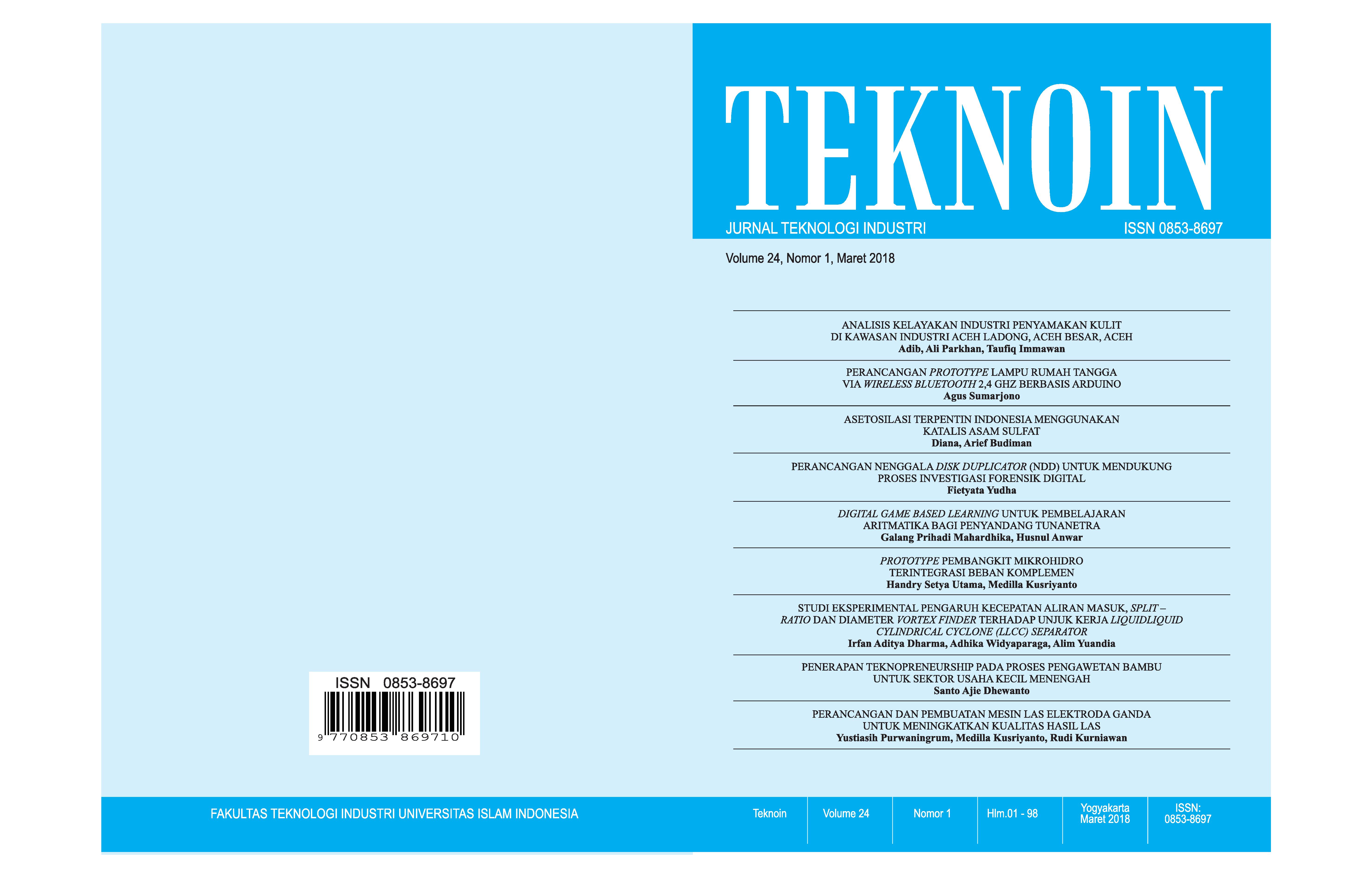Main Article Content
Abstract
The growth of industrial sector has increased. Especially for leather industries. Production of UPT Pengolahan Kulit Ladong in the form of wet blue tanned skin will be expected to cover some of the needs of national market demand. The purpose of this research is to analyze the operational feasibility of UPT Pengolahan Kulit Ladong from legal aspect, market aspect, technical aspect, management aspect, and also financial aspect. The object of this research is at UPT Pengolahan Kulit Ladong, Aceh Ladong Industrial Estate, Aceh Besar Regency, Aceh Province. The method to be used for research is techno-economical method. Data analysis consists of legal aspect analysis, market aspect analysis, technical aspect analysis, management aspect analysis, and financial aspect analysis. The results of this study indicate that in terms of legal aspects able to meet the requirements of legality, the market aspect seen from the still many unmet needs of skin that demand reached 20 million pieces of skin per year for the national market, technical aspects, to produce wet blue tanned skin can use the machine and equipment that already exist in UPT Pengolahan Kulit Ladong and already installed, management aspect that is with the availability of raw materials, it is expected when human resources are available also for UPT immediately operated and produce, and financial aspect where MARR: 10% , NPV: Rp. 286.089.235 (NPV> 0), BEP: 96%, PP: 4 Years 5 Months 19 Days, and IRR: 12.28%, so for the operation and production of UPT Pengolahan Kulit Ladong is feasible to run based on the analysis of whole aspects.
Article Details
Authors who publish with this journal agree to the following terms:
- Authors retain copyright and grant the journal right of first publication with the work simultaneously licensed under a Creative Commons Attribution License that allows others to share the work with an acknowledgement of the work's authorship and initial publication in this journal.
- Authors are able to enter into separate, additional contractual arrangements for the non-exclusive distribution of the journal's published version of the work (e.g., post it to an institutional repository or publish it in a book), with an acknowledgement of its initial publication in this journal.
- Authors are permitted and encouraged to post their work online (e.g., in institutional repositories or on their website) prior to and during the submission process, as it can lead to productive exchanges, as well as earlier and greater citation of published work (See The Effect of Open Access).
